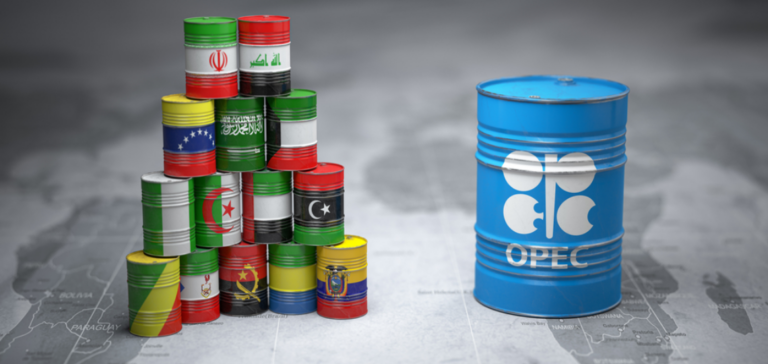Opep+ stays the course. A panel of the Organization of the Petroleum Exporting Countries and their allies (Opec+) recommended on Friday that the current production cutback strategy be maintained until the end of 2024, the day after Saudi Arabia announced it was extending its cuts.
Oil market: OPEC+ maintains additional cuts by Saudi Arabia and Russia
The alliance, which on Friday held a technical meeting of the Joint Ministerial Monitoring Committee (JMMC) by videoconference,
expressed its “appreciation for Saudi Arabia’s additional voluntary reduction of one million barrels per day and its extension for the month of September”, according to a statement.
In addition to the voluntary reduction begun in July, Deputy Prime Minister Alexander Novak announced a further cut in Russian exports of 300,000 barrels a day in September. Last month, Moscow had already announced a reduction of 500,000 barrels per day in August.
The alliance assured “its full recognition and support for the Kingdom’s efforts” and “thanked” Russia for its voluntary reduction.
Crude oil prices have returned to positive territory since the Russian and Saudi announcements, buoyed by the tightness of the market. Both world oil benchmarks are currently trading close to their highest levels in over three months.
Stability in the oil industry: JMMC confident in OPEC’s commitment
For Commerzbank analyst Carsten Fritsch, however, Saudi Arabia is likely to “gradually abandon the voluntary reduction over the coming months and return to the agreed production level of 10 million barrels per day”, as the production cut “results in a considerable shortfall for the country’s budget and hampers economic growth”.
The JMMC also reiterated “the commitment of its member countries” to the agreement reached in June 2023 setting the global oil production level at 40.46 million barrels per day. JMMC members will meet again on October 4 to review progress ahead of a meeting of officials from the oil-exporting countries (OPEC) led by Riyadh, and their ten partners led by Moscow, scheduled for November 26 in Vienna, the cartel’s headquarters.
The JMMC has no power to decide whether to raise or lower quotas, but discusses market conditions and makes recommendations that serve as a basis for the measures taken by the ministers.






















